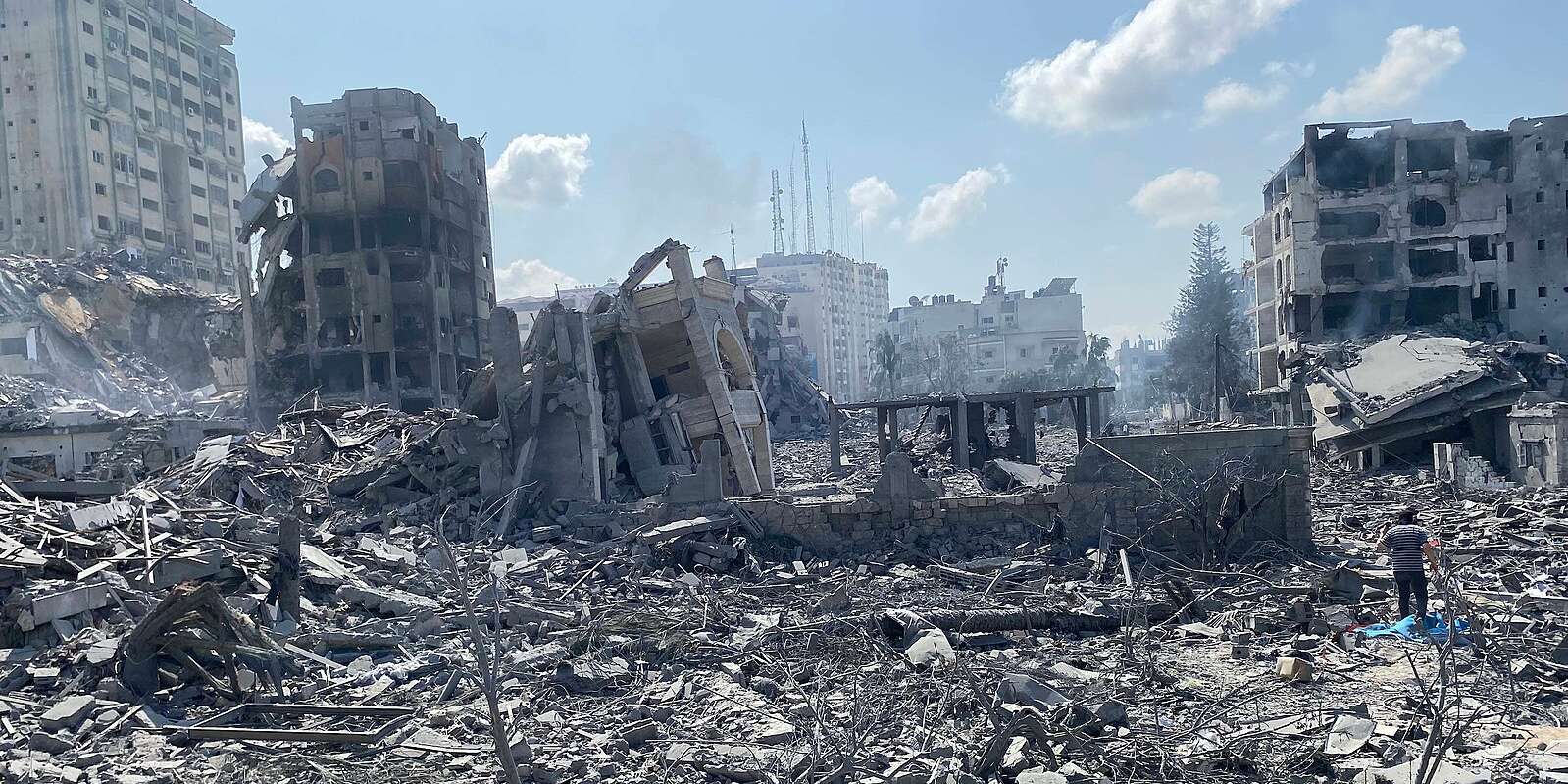In the weeks since Hamas’ horrifying attack on Israeli Jews in southern Israel, killing an estimated 1,200 people and taking more than 200 people hostage, I’ve been deeply troubled by Israel’s onslaught in Gaza and the U.S.’s role in aiding and abetting it.
According to Gazan health officials, more than 11,200 Gazans have died so far under Israeli airstrikes, of which more than 4,500 are children. Even if you take these estimates with some skepticism, it is important to remember that many thousands have perished under the rubble of collapsed buildings, making it impossible to accurately count their numbers, as their bodies have yet to be recovered.
In addition to the profound human cost, Israeli airstrikes have dealt a devastating blow to Gaza’s infrastructure, destroying over 41,000 housing units, damaging more than 270 educational facilities, and rendering more than half of Gaza’s hospitals out of service.
We recognize injustice in the Jim Crow South, in apartheid South Africa, and in Ukraine today. Why does our government fail to recognize it when it is practiced against Palestinians by the Israeli government, with U.S. money and weapons, in Gaza and the West Bank?
The good news is that many Americans do recognize this injustice.
Roughly 68% of respondents to a recent Reuters poll agreed with the statement that “Israel should call for a ceasefire and try to negotiate.” Why are our two political parties, including our president, so wildly out of step with vast numbers of their voters who support a ceasefire?
If we wish to defend a rules-based international order, we must hold ourselves and our allies to the standards and expectations required to uphold that order. If the U.S. continues to unconditionally aid and tolerate Israel’s indiscriminate onslaught in Gaza and apartheid in the West Bank, it will forfeit any right to chide its neighbors in the Global South for declining to support the war in Ukraine, and it will lose the moral legitimacy it wields over its adversaries.
Why are our two political parties, including our president, so wildly out of step with vast numbers of their voters who support a ceasefire?
As of Nov. 21, 41 members of the U.S. House of Representatives and two members of the U.S. Senate have called for a ceasefire. While I am proud of Colorado leaders like state Rep. Iman Jodeh who have called for a ceasefire, I am disappointed that, thus far, Colorado’s national delegation has not done so. I have called my representative, Joe Neguse, nearly every day for the past three weeks and will continue to do so until he calls for a ceasefire and joins H.R. 786, the Cease Fire Now resolution, co-sponsored by Reps. Rashida Tlaib, Cori Bush and others.
I am under no illusions about Hamas’ aims. Hamas did not launch the Oct. 7 attacks to liberate Gaza. It attacked to deal a killing blow to Israel and return the Palestinian issue to the world stage. Hamas represents a vile, mercenary, antisemitic idea, and the group does not represent the majority of Palestinians, who suffer under its governmental mismanagement and brutality. It must be removed from power. But to do so, Israel must not continue indiscriminate airstrikes, and the U.S. must not help it do so.
I am grateful the Israeli government and Hamas approved a temporary ceasefire agreement. Despite the agreement, which includes a four-day truce and the release of 50 Israeli captives by Hamas and the release of 150 Palestinian women and children from Israeli jails, Israeli Prime Minister Benjamin Netanyahu has stated that Israel will continue fighting until Hamas is defeated and all hostages are returned.
Calls for an immediate ceasefire may seem moot if both parties adhere to the terms of the agreement and it can be extended as Hamas releases more hostages, but in order for the pause to be effective and for aid to reach those who need it most, the ceasefire must be made permanent. It makes little sense to offer people humanitarian aid, only for those same people to still be in harm’s way if hostilities resume.
If or when Israel returns to bombing Gaza after the four-day truce is concluded, it and Hamas will continue endangering the lives of Palestinian civilians. Likewise, a monthslong or yearslong slog of close quarters fighting in Gaza, like the campaign to clear ISIS from Mosul or insurgents from Fallujah, will bring unimaginable suffering to Palestinians caught in the crossfire, will embolden fanatical elements of Israel’s rightwing government, and risks drawing regional actors like Iran further into the fray.
Worse — attempting to obliterate Hamas through the collective and relentless killing of Palestinian civilians will have generational impacts on the region, as a staggering number of victims are children. Children whose parents, siblings, extended family, housing, food, and security have been ripped away as punishment for crimes they did not commit. Children who will become adults with their own political assessments. Our failure to call loudly and strongly for a ceasefire will reverberate around the world for generations to come, in ways we can grimly predict.
I do not know if a viable two-state solution can be revived, though I fervently hope it can. Without a constituency for peace among Israeli and Palestinian leadership, however, such an outcome is foreclosed, and to develop that constituency, the violence must end.
Let us continue to call our elected officials and urge them to call for a ceasefire, and let us continue to urge President Biden to do the same. Without a ceasefire, no peace is possible.
This article initially appeared in Colorado Newsline, which is part of States Newsroom, a network of news bureaus supported by grants and a coalition of donors as a 501c(3) public charity. Colorado Newsline maintains editorial independence. Contact Editor Quentin Young for questions: [email protected]. Follow Colorado Newsline on Facebook and Twitter.




